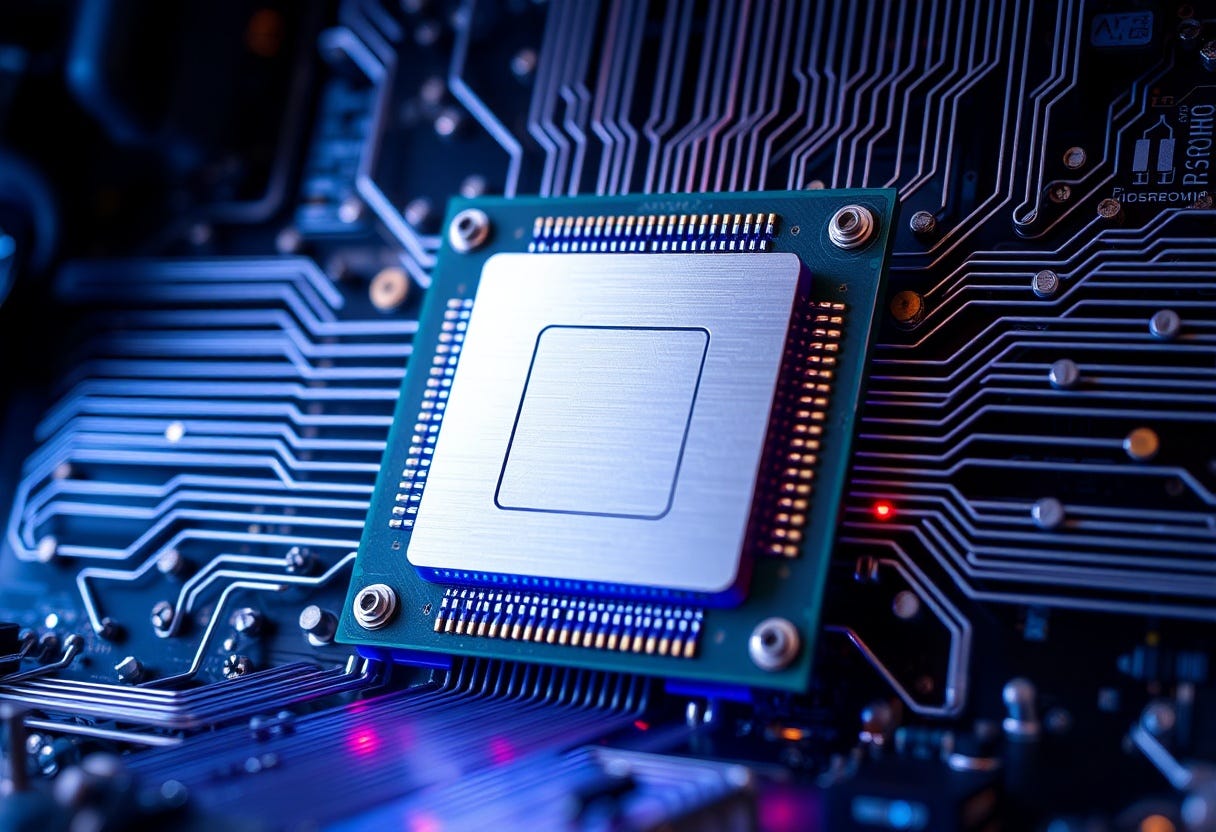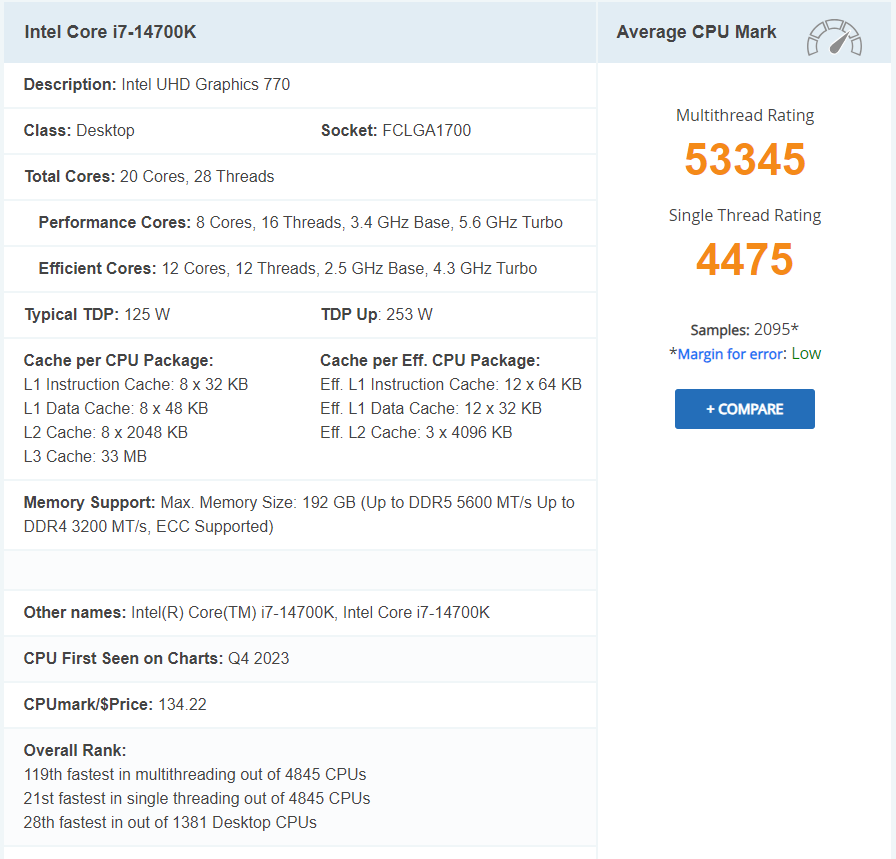Building a Audio PC: My Computer for Music Production [034]
Find a Music Production PC That Delivers
I just finished a long ride. My old Windows PC was a reliable partner for 10 years, but it was time for an upgrade. I've just ordered my new audio PC, and it's been running smoothly for a few days now.
With a powerful CPU, GPU, and plenty of RAM, I can now enjoy faster rendering times and a much more stable music production experience.
Installing all the audio software and plugins took a few hours to get the audio PC up and running, but it was ultimately worth it.
Here is my new Audio PC system:
Processor : Intel Core I7 14700K, 20(8+12)x, 20(8+12) x 3.4GHz to 5.6GHz
Ram : 32GB DDR5-6000 Dualchannel
Power supply 850W 80+ Bronze
Motherboard: MSI Z790-P WIFI, Socket 1700
2TB SSD, M.2, NVMe, PCIe4.0 and my other SSDs
Find the best computer for audio production
It's not just about the numbers. This upgrade has transformed my workflow:
I'm more productive. Ideas flow without technical interruptions.
My Mixing and Mastering process is smoother; I can run all the necessary plugins and do more detailed work.
I'm less stressed. No more crackling sounds when working.
The Investment Pays Off
Yeah, it wasn't cheap. But consider this:
Time saved on renders = more tracks completed
Stability = less frustration, more creativity
Power = The ability to work on larger projects without freezing individual tracks.
In the long run? This PC will pay for itself.
Advice for Fellow Producers
If you're on the fence about upgrading, ask yourself:
How much time do you waste fighting your current setup?
Are technical limitations holding back your creativity?
Can faster and more stable gear help you tackle higher-quality projects?
If you answered yes to any of these, it might be time to take the step.
Imagine sitting down at your new audio PC. It boots up in seconds, and your DAW opens like lightning. You start a new project, and the ideas flow—no stutters, glitches, or frustration—just you and your music.
A new audio PC can do that for you. It removes the technical barriers and lets you focus on what matters: creating fantastic music.
Here's what I learned on my journey to find my studio's ideal Windows audio PC.
Processor Power: The Heart of Your Audio PC
First things first: the CPU is the engine that drives everything. I wanted something powerful.
I ended up going with an Intel Core i7-14700K. This powerhouse has 20 cores (8 performance + 12 efficiency) and clocks from 3.4GHz up to 5.6GHz.
Why? Because when I'm layering tracks and adding instruments and effects, I need all the processing power I can get. No more waiting for ages to render that track!
This 20-core powerhouse is anything but excessive. Now, I can handle even more complex projects without any difficulty. It's like having a V12 engine under the hood – pure power exactly when needed.
But how do you find the right CPU for you? I recommend the following website cpubenchmark
Explore the newest CPUs, their performance, and prices to help you make the best choice. CPU Benchmark will assist you in finding the perfect CPU for your specific needs and budget.
Tip: When selecting a CPU for an audio production PC, consider the single-thread rating in gigahertz (GHz). This rating directly affects the performance of many digital audio workstations.
When a bus processes audio, it essentially carries out a series of operations on the audio signal. These operations, such as applying effects or mixing tracks, are typically done sequentially. Although a DAW can distribute some tasks across multiple cores for efficiency, the core processing of the bus itself is often handled by a single thread.
Motherboard: The Foundation
I opted for the MSI Z790-P WIFI, Socket 1700 for the motherboard. It's an ideal base for my build, providing excellent compatibility with my selected components and built-in Wi-Fi for added convenience.
Investing in Sufficient RAM is Essential.
Next up: RAM. This is where your samples and virtual instruments live. Skimp here, and you'll be sorry. I learned that the way with my even older setup 20 Years ago ;).
These days, 16GB is the bare minimum, but I went for 32GB DDR5-6000 Dual Channel. Why? Because I love using massive libraries. And let me tell you, loading up a full-string section without any lag is pure bliss.
Store your data on SSDs
Remember the days of waiting for projects to load? Gone. SSDs changed the game. I got a 2TB SSD, M.2, NVMe, PCIe4.0 drive for my system and main projects.It's like I can teleport between projects now. With just a click, boom – I'm there.
Graphics: Do You Really Need It?
Here's where I saved some cash. I don't play video games; I focus on music production. A basic GPU should suffice unless you're doing intensive video editing alongside your music. I chose to use the integrated graphics on my CPU, which perfectly handles my dual monitor setup.
The Silent Treatment: Keeping It Quiet
A powerful PC can sound like a jet engine, which is not ideal when you're recording delicate acoustic parts. So I invested in a Be Quiet case with sound-dampening foam.
Real-World Performance: Putting It to the Test
With everything set up, I fired up my DAW and loaded a project that used to bring my old PC to its knees: 100 tracks, virtual instruments, and tons of plugins. I hit play. It was a smooth ride. There were no clicks, pops, or dropouts—just pure, uninterrupted creativity.
The Final Mix: A New Audio PC Was It Worth It?
In a word: absolutely. Yes, it was an investment. But the time I save, the frustration I avoid, and the creative possibilities I've unlocked? Priceless. Now, when inspiration strikes, there's nothing holding me back. My new audio PC isn't just a tool – it's my creative partner.
So, if you're struggling with an aging setup, take the plunge and build your dream machine. Your future tracks will thank you.
Cheers Marcus
P.S. If you want me to help you turn your ideas into finished tracks, check my Website for Mixing and Mastering.



